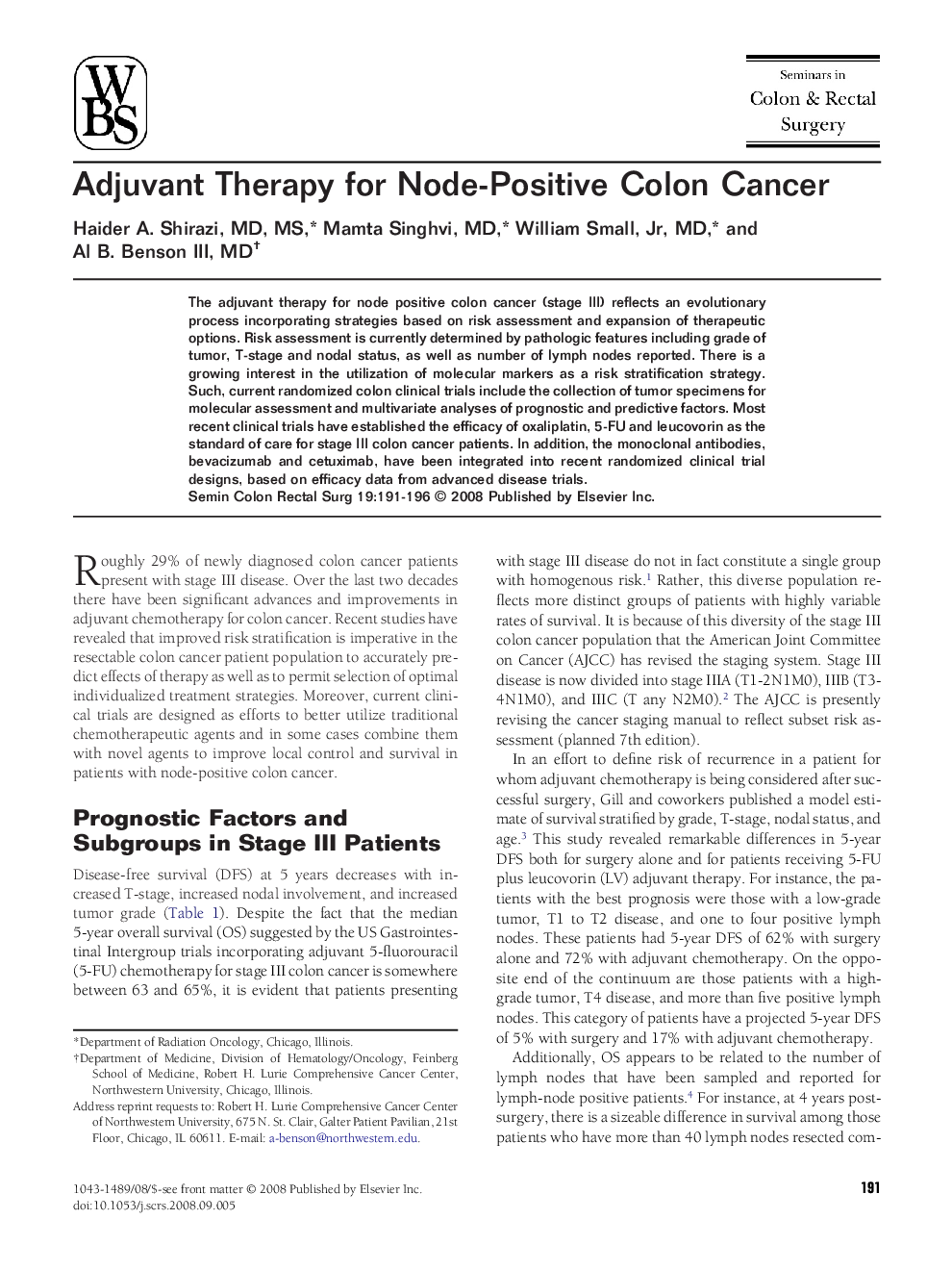| Article ID | Journal | Published Year | Pages | File Type |
|---|---|---|---|---|
| 3319583 | Seminars in Colon and Rectal Surgery | 2008 | 6 Pages |
The adjuvant therapy for node positive colon cancer (stage III) reflects an evolutionary process incorporating strategies based on risk assessment and expansion of therapeutic options. Risk assessment is currently determined by pathologic features including grade of tumor, T-stage and nodal status, as well as number of lymph nodes reported. There is a growing interest in the utilization of molecular markers as a risk stratification strategy. Such, current randomized colon clinical trials include the collection of tumor specimens for molecular assessment and multivariate analyses of prognostic and predictive factors. Most recent clinical trials have established the efficacy of oxaliplatin, 5-FU and leucovorin as the standard of care for stage III colon cancer patients. In addition, the monoclonal antibodies, bevacizumab and cetuximab, have been integrated into recent randomized clinical trial designs, based on efficacy data from advanced disease trials.
